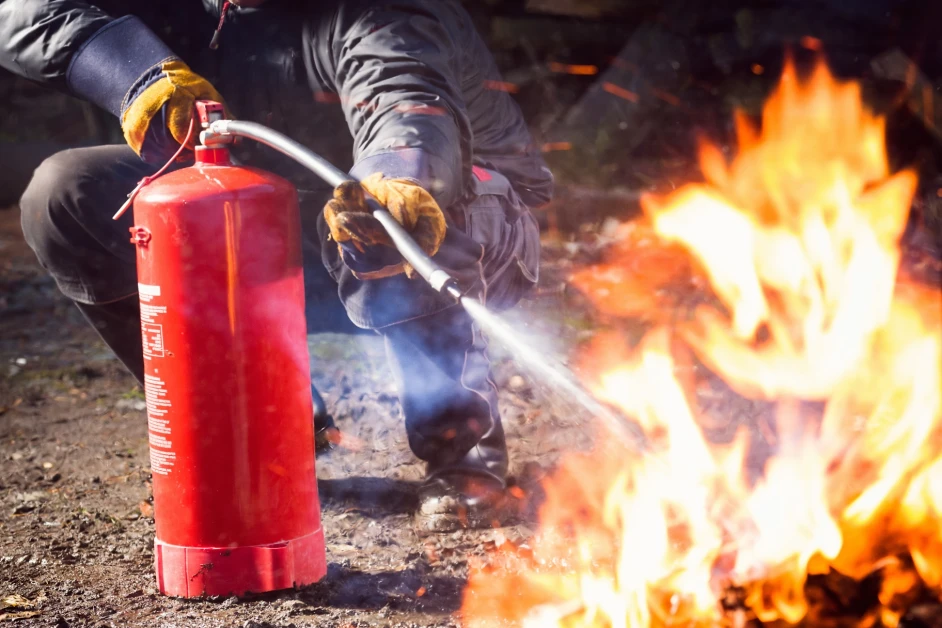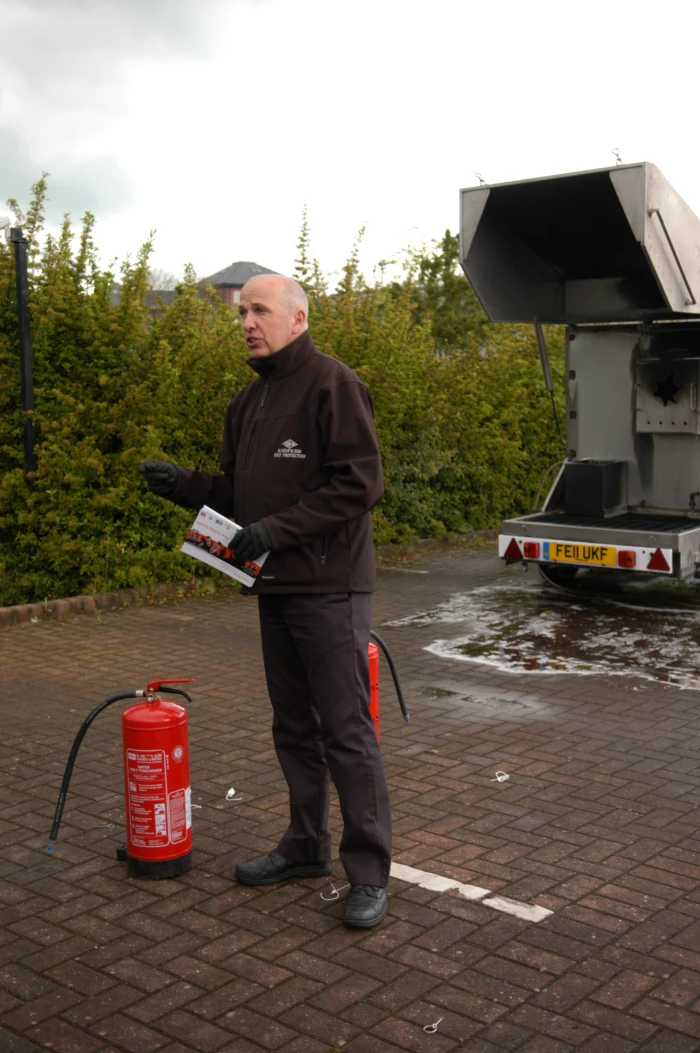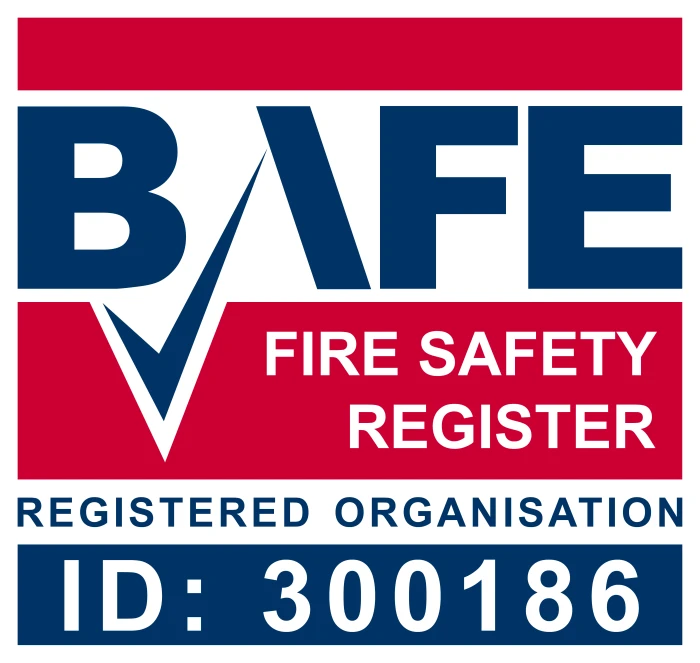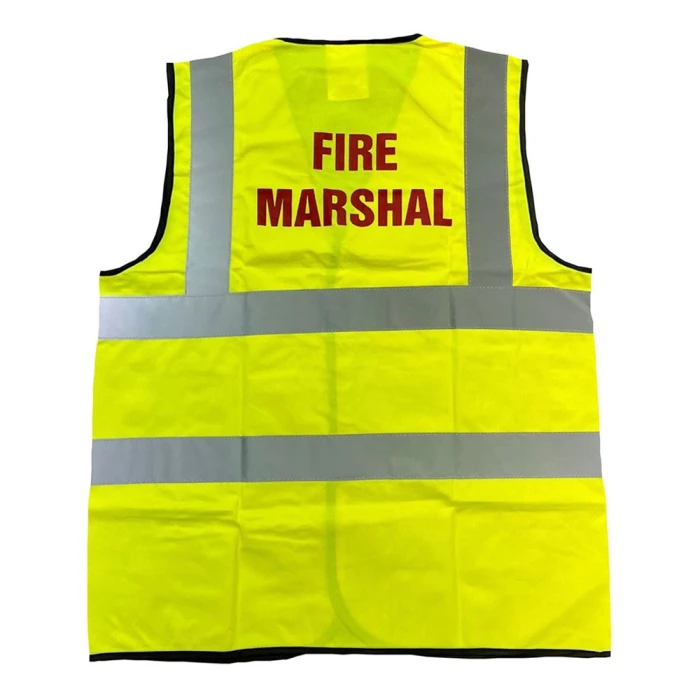
Need assistance?
Need Assistance? Call Us 0330 058 0631





















 Book a service
Book a service

08/05/2024 • by Lynsey B

The fire safety industry is experiencing a worrying shortage of professionals. This lack of qualified fire safety personnel is leading to significant skill gaps in the market. Therefore, placing additional stress on those already in the field. Ultimately, this is increasing the risk of fire safety issues throughout the UK.
As urbanisation increases and buildings become more complex, the demand for fire safety measures grows. Fire safety professionals are extremely important in ensuring high quality building standards. Fire safety standards must be met in order to prevent fires and protect occupants. They are required to design, construct and maintain buildings for this to happen. However, the supply of qualified individuals in fire safety jobs has not kept pace with this demand. This imbalance is a cause for concern as it has several far-reaching consequences.
Fire safety is a fundamental aspect of public health and safety. Adequate fire safety measures can prevent fires from starting, limit their spread and protect lives and property. Fire safety training ensures that individuals and organisations know how to respond effectively in the event of a fire. Therefore, reducing the likelihood of injuries and fatalities.
The shortage of fire safety professionals means that many buildings may not receive the necessary inspections and fire risk assessments that they require. Without these regular checks and updates to the fire safety systems, the risk of fire incidents increases. Buildings, especially older structures, may have outdated fire safety systems in place. For example, their fire alarms and sprinklers may need to be upgraded. However, these are often overlooked due to the lack of qualified personnel available.
Those currently in fire safety jobs often find themselves overburdened with responsibilities. With fewer professionals available, existing employees have to cover more ground. This means overbooked schedules which can lead to burnout and decreased effectiveness. This can lead to mistakes as overworked professionals might miss critical details during inspections.

Providing support to existing fire safety professionals can help reduce burnout and improve job satisfaction. This can include offering professional development opportunities, mental health resources and more manageable workloads. By taking care of the current workforce, the industry can maintain a high standard of fire safety services while also encouraging retention.
Governments and local authorities impose stringent fire safety regulations to ensure public safety. However, a lack of fire safety professionals can lead to delays in meeting these regulatory requirements. New buildings may not be certified as fire-safe on time and existing buildings may fall behind on necessary upgrades. This can lead to an increase in non-compliance and potential legal repercussions.
Fire safety training is essential for both fire safety professionals and the general public. It ensures that everyone knows how to respond in the event of a fire. With the correct training, there is a higher chance of potentially saving lives. However, with fewer professionals available to conduct training, many individuals and organisations may not receive the necessary education. This gap in training can lead to improper responses during fire emergencies.
To become a fire safety professional, individuals must obtain specific fire safety qualifications. These qualifications ensure that professionals have the necessary knowledge and skills to perform their duties effectively. However, the path to obtaining these qualifications can be demanding. They require a significant amount of time and financial investment. This can deter potential candidates from entering the field. Therefore, contributing to the shortage of professionals.

The UK is currently experiencing a significant skill shortage in fire safety professionals. Fortunately, organisations like Fire Protection Shop are stepping up to address this critical problem. They offer comprehensive fire safety training that can help bridge the gap and ensure a safer environment for all.
Fire safety training equips individuals with the knowledge and skills needed to prevent fires and respond effectively when they occur. This training is crucial for reducing fire risks and ensuring safety. Fire Protection Shop recognises this need and offers a range of training programs designed to address the current shortage of qualified professionals.
If you are interested in enhancing your fire safety knowledge, Fire Protection Shop can help.
Ensure that your organisation is fully compliant with fire safety regulations with the below fire safety training options.
Fire marshals ensure the safety of building occupants during a fire. Their responsibilities include identifying potential fire hazards, ensuring fire safety protocols are followed and leading evacuations during emergencies.
Fire Protection Shop's Fire Marshal training provides in-depth knowledge of fire prevention and emergency response procedures. This comprehensive training covers the identification of fire risks, how to safely use fire extinguishers and the development of evacuation plans. Trainees also learn how to conduct regular fire drills and educate other employees about fire safety practices. Each participant who takes the course will receive a certificate at the end of the course. This training is essential for anyone designated as a fire marshal in their workplace, as it empowers them to act quickly and effectively in the event of a fire.

Basic fire safety training is crucial for all employees, regardless of their role. This course covers the fundamentals of fire safety. Topics include how fires start, how to prevent them and what to do in the event of a fire. The training typically includes an overview of fire safety legislation, evacuation procedures and common fire hazards. Adding to this, participants will learn about the different types of fire extinguishers and their uses. The course includes further information about the importance of keeping escape routes clear and how to raise the alarm in case of a fire.
By educating employees on these basics, organisations can significantly reduce their fire risk. Informed employees are more likely to identify potential hazards and respond appropriately during an emergency. Consequently, this will reduce the likelihood of injury and property damage in the workplace.
Hands-on experience is invaluable when it comes to fire safety. Fire Protection Shop offers live practical fire training. This allows participants to practise using fire extinguishers and other fire safety equipment in a controlled environment. This practical experience helps to build confidence and competence. Therefore, ensuring that individuals can effectively use fire safety equipment when needed.
During these sessions, trainees are taught the correct techniques for operating various types of fire extinguishers, handling fire blankets and activating fire alarms. They also participate in simulated fire scenarios. This helps individuals understand fire and the best practices for evacuating a building safely. This practical experience can make a significant difference in a real emergency. It will prepare individuals to react quickly and effectively, potentially saving lives and minimising damage.
For those who prefer flexible learning options, such as office spaces, Fire Protection Shop offers CPD accredited online courses. These courses cover a wide range of fire safety topics and can be completed at the participant's own pace. Online learning ensures that everyone, regardless of their schedule, can access high-quality fire safety training.
The courses are designed to be interactive and engaging. They often feature videos, quizzes and practical exercises to reinforce learning. Topics covered in these online courses include fire risk assessments, fire safety management and specific regulatory requirements. They can also be industry specific, for example, fire safety for care homes or hotels.
CPD accreditation means that the courses meet the Continuing Professional Development standards and benchmarks. This is important for professionals looking to maintain their certifications. Businesses and their employees can easily stay up to date with the latest fire safety practices. This flexible approach to training makes it easier for busy professionals to enhance their knowledge and skills without disrupting their work schedules.

Yes, fire safety training is required in the UK under the Regulatory Reform (Fire Safety) Order 2005. This legislation mandates that employers and building owners must ensure the safety of all occupants. Furthermore, they must implement adequate fire safety measures. Fire safety training is a crucial component of these measures. It ensures that employees understand the fire risks associated with their environment and are familiar with emergency procedures. This training is essential for creating a safe workplace and complying with legal obligations.
It is generally recommended that fire safety training be carried out annually. Fire safety training should be conducted to ensure that all employees remain aware of fire hazards. They must know the correct procedures to follow in case of a fire. The frequency of this training may be more than annually, depending on the specific risks associated with a workplace.
Additionally, new employees should receive fire safety training as part of their induction process. There should also be refresher courses held whenever there are significant changes in the workplace. For instance, if there have been alterations in the office layout.
The responsibility for ensuring fire safety training in a workplace typically falls on the employer or the person in control of the premises. This individual is often referred to as the 'responsible person' under the Regulatory Reform (Fire Safety) Order 2005. This individual is accountable for conducting fire risk assessments, implementing fire safety measures and ensuring that all employees receive appropriate fire safety training. The responsible person must ensure that fire safety protocols are clearly communicated. They must ensure that regular training sessions are organised to keep all staff informed and prepared. This role is critical in maintaining a safe working environment and ensuring compliance with fire safety regulations.
.jpg)
The field of fire safety encompasses a diverse range of roles. Each fire safety job is critical to preventing fires, protecting lives and ensuring that buildings are safe. From hands-on roles to strategic positions, fire safety jobs require a blend of technical knowledge, practical skills and a commitment to public safety. Here is an overview of some key fire safety roles and their responsibilities.
Fire Safety Officers ensure that buildings comply with fire safety regulations. Their responsibilities include conducting fire risk assessments, inspecting premises and advising on necessary improvements. Fire Safety Officers must stay up to date with current legislation and standards, ensuring that all safety protocols are adhered to. They also often deliver fire safety training to employees and develop fire evacuation plans.
Fire Protection Engineers design and implement fire safety systems to protect buildings and their occupants. Their work involves creating fire detection and suppression systems, such as sprinklers, alarms and smoke control systems. They also perform fire modelling and simulations to predict how fires will spread. Fire Protection Engineers collaborate with architects, builders and other engineers to integrate fire safety into the overall design of a building.
Fire Investigators are tasked with determining the cause and origin of fires. They examine fire scenes, collect evidence and analyse burn patterns. This helps them to understand how a fire started and spread. Fire Investigators often work closely with law enforcement and insurance companies, providing expert testimony in legal proceedings if necessary. Their findings can lead to improved fire safety standards and help prevent future incidents.
Fire Safety Consultants provide expert advice on fire safety issues. They help organisations to comply with regulations and improve their safety protocols. They conduct fire risk assessments, develop fire safety strategies and offer training to employees. Fire Safety Consultants often work on a project basis, offering their expertise to a variety of clients across different sectors.
Fire Marshals are responsible for overseeing fire safety in specific buildings or areas. Their duties include conducting regular fire drills, ensuring that fire exits are accessible and that fire safety equipment is in good working order. Fire Marshals are also important during an emergency. They will coordinate evacuations and ensure that everyone exits the building safely.
Fire Safety Trainers educate employees and the general public on fire prevention and response. They design and deliver training programs that cover topics such as the use of fire extinguishers. Fire Safety Trainers must stay updated with the latest fire safety practices and regulations to provide accurate and relevant training.
We use cookies to enhance your site experience. Choose your preferences below.
